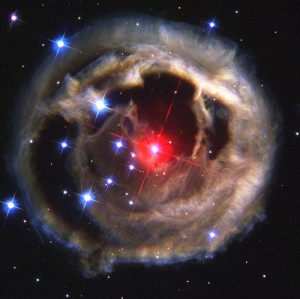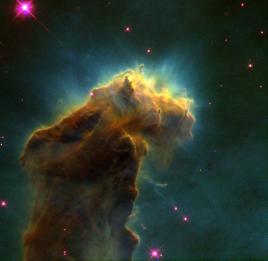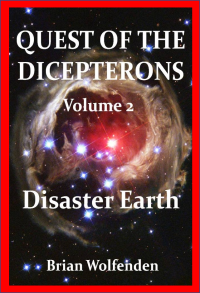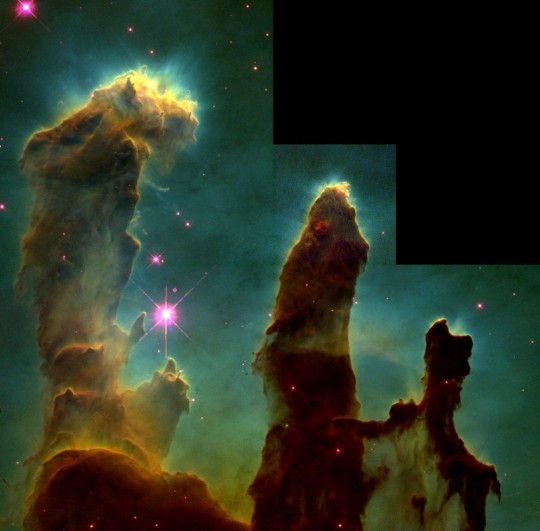Disaster Earth
Chapter 1 - Yucatan Peninsula, Mexico
‘The year is twenty-one, seventy and you are about to meet the first of two new heroes in this, my second chronicle.’
Raphaella Medici looked up and breathed a sigh of pure joy. The Milky Way spread across her horizon in all its magnificence. She had crept out of the tent in the early hours of the morning, trying carefully not to disturb her colleagues.
There was a rustle of the flap and a body slithered next to her.
‘Wow,’ whispered James Davis.
They lay silently as billions of stars twinkled and danced above them.
‘Tell me, Ella, where’s your sister now?’
‘Olivia should be at the star Seren,’ she said and pointed in a northerly direction at the sky. ‘Look along the line of my hand. In that area is the Constellation of Vercingetorix. It’s ten light-years away and over twenty years since she left on the starship.’
‘So she’ll be defrosted by now!’
‘I told you. Liv’s not been frozen but in cryo-hibernation,’ she giggled and playfully punched him in the shoulder.
‘Shhh,’ said James. ‘You’ll wake the others.’
‘It’s strange,’ she whispered. ‘Although I know she’s there, when I look up at her star I’m seeing it as it was ten years ago. It will be another ten years before I know she’s arrived for certain.’
‘Run that by me again, Ella. You know I struggle with space-time. I’m much more comfortable with rocks that are hundreds of millions years old.’
‘It’s all to do with the speed of light,’ she explained. ‘When we look at the Sun, we see it as it was about eight minutes ago. That’s how long the light has taken to travel one hundred and forty million kilometres. But the other stars are so far away that we express their distance from us in units based on the distance light travels in one year. We call them light-years.’
‘Err, yes, I think I’m with you.’
‘Look again at that group of stars.’ She pointed towards Seren. ‘The light has taken ten years to reach our eyes and, as radio communications also travel at the speed of light, a message sent now from Olivia’s starship will reach us in ten years time.’
‘Hmm, I’ll take your word for it. When do you hope to actually see your sister again?’
‘Not until after twenty-one, ninety-five.’
‘Strewth! We’ll both be mid-fifties by then.’
‘Raphaella Medici is Olivia’s younger sister. She is known as Ella to her multitude of friends and colleagues and her worldwide fan base on the Safe Solar Protocol. She is a bubbly, dynamic character and though relatively short and slight in stature, she dominates the space around her. She has her mother’s red hair and freckles and is the complete opposite of her dark haired, more serious sister. Ella and James graduated in geology and glaciology and both are now working on their doctorate theses. They met at a dig in the Sinai Desert the previous year and were surprised when their paths crossed again in the Chicxulub crater on the Yucatan peninsula.’
‘How did you originally get interested in geology?’ James asked.
‘Oh, that was years ago when I was seven. Liv had just left for training for her star mission and my parents were very upset. So was I, as you can imagine. We went on holiday, travelled around Europe and the UK, but one rocky beach changed everything for me.’
‘How come? Where was that?’
‘In Wales, a place called Sully. We met a local resident who said there were dinosaur footprints on the beach. I remember jumping up and down shouting ‘show me, show me’. And there they were in the rocks, hard to notice at first but you could see the repeating pattern. I put my hands in the imprints and felt a tingle, a connection to the past through the cool, damp surface to an amazing world. So that was it, rocks and dinosaurs became my passion.’
‘And here you are where it all ended for those magnificent creatures.’
‘Yes, my research is about what caused their demise. That’s why I’m here; re-sampling the KT layer in this crater.’
‘So what’s next for Ella?’
‘Well, lots more sampling to do worldwide and two to three more years to finish my doctorate. During this time I’m off to the Antarctic, training to be an ice-pilot for the thermal power generation project down there. It’ll give me access to their computers for my project. What about you?’
‘I’m going on an archaeological dive in the Black Sea. About eight thousand years ago it was a smaller expanse of water. In fact it was a lake. One theory says that the Mediterranean suddenly rose and flooded into it. We’re going down to the original perimeter to find out what happened.’
‘Fascinating; I wonder what caused the sea level to rise.’
They lapsed into silence staring at the myriad of stars above. Ella’s eyes were drawn to a familiar group. A lump formed in her throat and a tear ran down her cheek.
Chapter 2 - Wake Up Call
‘The year is twenty-one, seventy-five and we are thirty-three million kilometres from Earth. You are about to meet one of the older members of my computer family who has some surprising news for his passenger.’
He could not understand what he was seeing. It was grey with some fuzzy definition and encircled on both sides; like looking through binoculars. There were different sounds, but his mind could make no sense of the whirrs, beeps and hisses.
From nearby came a voice, familiar, but as yet unrecognised.
‘You are waking up, Chuck Parker. Relax, relax,’ intoned Zec-G quietly from a small speaker near his ear.
The grey became stronger and the blurred boundaries sharpened to distinct lines. He was staring at a ceiling, or was it a roof with rectangular panels? It was vaguely recognizable. The noises strengthened. There were distinct clunks, the hissing of escaping air and electronic buzzes. He realised that he was looking through a mask which covered his eyes and, he guessed, his mouth. Every so often his mind jumped when something gently touched his eyeballs, causing him to blink involuntarily. Then he felt moisture on his lips and tongue as another entity brushed against his mouth.
‘You are now awake, Chuck,’ the strange voice continued. ‘Awake and all life-signs look good.’
Then his whole body tingled as a soothing pulse ran from head to toe. He felt his legs being lifted, one at a time, and flexed at the knee. Moments later, his arms moved and his fingers were massaged by that same gentle pulsing. Finally, his head moved from side to side and then up and down as if nodding. His view of the surroundings widened and he realised he was lying in a cocoon-shaped structure and that part of the roof above was clear. He could see points of light, dozens of them, and he suddenly realised they were stars.
But why? Why was he lying on his back staring up at the night sky? Who was talking to him?
‘Yes, Chuck, you are fully conscious. Welcome to the year twenty-one, seventy-five.’
Then it hit him. The pulsating bed, the noises, and this view – he was in a spaceship. He fought with his memory to recall the name and why he was here. Yes! - StarGazer, StarGazer-1 - this was his ship. He had survived cryo and flown to the stars and back. But, something was terribly wrong.
‘This spaceship is one of two I planned and launched in twenty-one twenty to test the ion drive accelerator and cryo-hibernation under the demanding conditions of a trip to the outer regions of the solar system. The drive is capable of achieving one tenth of the speed of light and the cryo units are the latest design from the test laboratories at Moon base.
‘My biggest problem was tempting two astronauts to volunteer for a six year mission particularly as they were asleep for most of it. However, Commanders Abraham Joshua Stewart [AJ] and Chuck Parker did just that.
‘Chuck Parker was born in twenty-eighty in Chicago, Illinois. From a young age he was fascinated by space and followed every moment of his father’s epic voyage to Mars in twenty eighty-eight. He was determined to follow in the traditions of the Parker family, which stretched back to nineteen, seventy-two, with the launch of Pioneer-10.
‘Chuck trained to be an astronaut at Moon base and made several missions to Mars. But he desperately wanted to travel to the nearest star and this obsession with protracted space travel led to long absences from home.
‘He is tall, well-built with sandy hair already thinning at the top. He is very good-looking with piercing blue eyes. However, he does not mix well with others and buries himself in intensive training for future missions.’
Surely he had misheard? Although he could not speak, his brain shouted as loud as possible.
‘You’re wrong, Zec-G! It should be twenty-one, twenty-five, that's five years in cryo – how can it be twenty-one, seventy-five?’
The on-board computer, a masterpiece of artificial intelligence called Zec-G, recognised the signs of extreme agitation and released a tiny quantity of drug into the astronaut’s body via one of the intravenous lines.
‘Calm yourself, Chuck Parker, you are alive and well. All your bodily functions are excellent. Relax.’ Zec-G said reassuringly.
The lone astronaut in StarGazer-1 calmed down and fell asleep. This would be a very brief slumber compared to that of the previous fifty-five years.
Chapter 3 - What year is it?
He woke, one day later, and was instantly alert and aware. He knew who he was, where he was and why, but sensed that something was wrong.
‘Chuck Parker,’ Zec-G said quietly, ‘we have to start the process of detaching you from the cryo-unit. Relax and follow my instructions precisely.’
Zec-G then coached his patient through a critical series of steps. This was a very slow process as limbs which had not moved voluntarily for over half a century responded reluctantly to Chuck’s own thought processes and instructions.
After three days, which included several twelve-hour sleeping sessions, his face mask and various intravenous lines were removed. His arms were free but the body straps remained in place to hold the astronaut in the weightless conditions of outer space. Now Zec-G slowly raised the back of the bed to the sitting position and further strengthening exercises for the arms and legs began. It would be days before he could stand and manoeuvre himself to the control seat of his spaceship.
After several attempts at speaking, which initially only resulted in quiet croaks, Chuck eventually got his voice back and nervously asked the question his mind had been dreading over the past few days.
‘Zec-G, what year is it?’
‘Twenty-one seventy-five obviously.’
‘But it can’t be,’ replied Chuck as loudly as his weak voice would allow. ‘I was supposed to wake up in twenty-one twenty-five.’
‘Incorrect, Commander. My database clearly shows twenty-one seventy-five as your wake-up date, and I can assure you that that is the current year.’
‘But that means I’ve been fifty-five years in cryo! It should have been five – what the Hell’s gone wrong, Zec-G? Surely you suspected that something was amiss?’
‘I admit that it was strange, particularly as a key computer had its programming completely wiped clean. I have tried re-setting without success but a reboot from mission control is the only solution.’
‘So why haven’t they?’ Chuck asked with a sick feeling growing in his stomach.
‘We have had no communications with mission control for fifty years, since the massive solar flare of twenty-one twenty-five.’
Then reality struck home and with difficulty he put his head in his hands.
‘My God! I have been in cryo for over half a century. And, and....
.... I’m ninety-five years old!’
Three days later, Chuck exited the cryo-pod and wobbled unsteadily to the command seat of StarGazer-1. He glanced at the digital time display showing the year twenty one seventy five and watched the seconds ticking away. He looked out of the clear dome at a myriad of stars and a familiar cluster ahead.
‘Where are we, Zec-G?’
‘Thirty-three million kilometres from Earth and ahead you can see the constellation of Aries.’
Part of the dome then displayed course, speed and other vital information concerning the spaceship’s status. The trajectory was a shallow curve tracing their path from Earth, fifty-five years earlier, to their current position. Chuck noticed that the ion-drive was shut down and the ship was drifting through space without power; even so, it was travelling at twenty thousand kilometres per hour but in the opposite direction to Earth.
He knew that the original flight plan was a steeply curved parabola which would have brought him back towards Earth after five years’ cryo-hibernation.
‘Why are we on this trajectory? It will take thousands of years to get to Earth. Turn this ship round immediately, Zec-G!’
‘I regret, Commander, that that is not possible. The nuclear power plant expired twenty years ago and I have been preserving the dwindling supply of conventional fuel to ensure your safety in cryo-hibernation. We are now relying solely on solar power to maintain power cells for vital functions.’
‘Thank-you, Zec-G, I know your priorities are to preserve life first but why are we on the wrong course and why have you failed to make contact with mission control?’
‘According to my database we are on the correct course but this is the secondary back-up circuit as the main and primary circuits were affected by the flare. Also I see that the trajectory algorithm contains a value in its formula that is the number of years in cryo viz. fifty.’
‘But it’s supposed to be five,’ said Chuck banging his hands down on the console in front of him. ‘Little wonder we’re so far away when a key number is ten times what it’s meant to be. What happened to the error checks? Surely they would have calculated that something was wrong?’
‘I have examined this. Cryo-time error is based on a percentage of the original value being exceeded; specifically zero point one per cent. That has not been exceeded based on the value in my database of fifty years cryo-hibernation.’
‘But that’s crazy. Who would programme based on percentage?’
‘Remember we are using the second back-up programme. Each uses different formulae and criteria to prevent a common error being replicated.’
‘My God! How much worse can it get? I think the solar flare did more than wipe out programming, it changed vital numbers as well. It’s the only logical answer,’ Chuck said dejectedly. ‘But what about communications?’
‘A bank of solar arrays burnt up and curled over the antenna. You can see a camera view on the dome display. I have attempted to get one of the external robots to clear it but the track is damaged. I have been trying to force the robot through but without success and it is now stuck. I have insufficient fuel for further attempts.’
‘So what do we do next?’
‘A spacewalk to clear the antenna.’
‘Spacewalk! I can barely hobble three metres. How long before I’m fit enough to go outside?’
‘Two and a half weeks minimum after cryo-hibernation, according to my database.’
‘At the moment, I don’t have much confidence in your database, Zec-G.’ Chuck knew that if he could not restore contact with base, he would be doomed to drift through space until........well, he did not want to think about that.
Chapter 4 - Hijack!
Three weeks after waking up from cryo-hibernation, Chuck could move easily from command seat to ‘night’ quarters and to the leisure area which doubled as a small gymnasium within the cramped interior of StarGazer-1. He had exercised each day, building up strength in his arms and legs. He felt good and ready to go ‘spacewalking’ but he knew that the computer would not let him out until this recuperation period was exceeded and he had passed a fitness test set by Zec-G.
He stared out of the dome at the black emptiness of space and his mind drifted back to twenty-one twenty, which did not feel that long ago. He could see his son, Scott, clutching his grandfather’s hand as they waved and photographed him before he entered the spaceship. His chest tightened as he realised that his little boy was now sixty-one and his father was almost certainly dead. He reflected that his obsession with space travel had cost him his marriage and now his son. For the first time in his life he doubted the decisions he had made.
He wondered if Scott had achieved his dream as, even at the age of six, he was determined to go to the stars and keep alive the tradition of generations of Parkers. Chuck thought of his good friend AJ, who had gone on a similar cryo journey.
‘I hope his computer woke him up at the right time,’ he said aloud and for the benefit of Zec-G, who did not reply.
After a particularly gruelling series of exercises, Chuck returned to his command seat. He was breathing heavily but otherwise feeling good. He wiped some perspiration from his face.
‘You’re ready to go outside,’ said Zec-G.
‘Good, let’s get the job done and send a message back to base.’ Chuck had performed hundreds of space-walks; several to carry out emergency repairs. But this one, he reflected, was the most critical walk of his life.
He donned his space-suit and entered the air-lock. He clamped his helmet in place and opened the valves on his back-pack which gave air to breathe and pressure throughout the suit. He attached the safety tether which also provided communications with Zec-G. Finally he strapped himself firmly into the seat in the air-lock.
‘Ready,’ he announced and felt a pull on his body as the atmosphere rushed out.
‘Pressure zero, open hatch manually.’
Chuck weightlessly moved towards the outer door and released the catches; it swung effortlessly inwards. He positioned himself carefully just outside the space-craft. There was no fuel for the suit-thrusters. He would have to manually pull himself along the side of the craft until he reached the jammed robot near the damaged antenna. Although the sun was much further away, there was reasonable light but he was shielded from its harmful radiation by the body of the space-ship. They had timed the space-walk accordingly.
‘When you reach the robot, crank the manual lever. This should force it through the damaged section,’ said Zec-G.
‘It won’t move forward, so I’m reversing the gear to try to move it back. It’s moving. Ah, I can see the problem. There’s a piece of solar panel stuck in the track. I can just reach it with the extendable grips. There. Got it. The track’s clear now.’
‘Move the robot to the end of the track. I’ve got just enough power to operate the cutting tool.’
Chuck inched the robot towards the back of the huge solar panel. He could see the problem. A large section had burnt up, coiled back and wrapped itself around the communications antenna. He backed away at Zec-G’s warning and watched the scissor-shaped tool extend and snip its way through the panel. Then Zec-G gripped the damaged section and lifted it clear of the antenna.
‘Well done, Zec-G.’
‘Make your way back to the air-lock, Chuck, while I power up the antenna. Good, it’s working......’
Suddenly alarms clanged and red lights flashed.
‘Double-red emergency!’ cried Zec-G. ‘Trying to apply some force-field but computers not responding.’
Chuck’s attention snapped forward along the side of the craft. His brain could not accept what he was seeing. A shape in the distance and, in a fraction of a second, a massive wall of grey was in front of StarGazer-1. Then a huge black hole opened in the face of the unknown behemoth.
‘Where in Heaven’s name did that come from!?’
‘It just appeared on my radar. No warning. But I got a short transmission out and a video clip. Look-out! We’re going in.’
Chuck put his arms to his face as the shape rushed at him.
‘You may recall at the end of Volume One that General Patrick L. McFarland,now well into his eighties, had made one of his rare visits to Moon Base. He was standing behind a groupof fifty operators supporting Mission TitanLife-3 and could see, on the dome display, the ROL lander at the camp set up on Jupiter’s moon, Titan. In the distance, astronauts were finalising the complex drilling platform that would allow them to seek out new life-forms that may exist in the seas below the frozen surface. This mission was also exploring the nearly regions to determine a suitable location for a future base.
‘The General had been startled by a shout from an operator who had rushed to a little-used console. ‘A signal from Stargazer-1, Commander Chuck Parker’s mission,’ he had cried. They heard a familiar voice, ‘Where in heavens name did that come fro...’ and saw a video clip of a strange grey shape with a hexagonal opening. The General had sat down; stunned at the evidence that Chuck Parker was still alive after fifty-five years of silence.’
Chapter 5 - Into the Abyss
Black so intense he could not believe that his eyes were open, so he forced his lids further apart.
Silence so intense it seemed to press on his ears.
Chuck wondered if this was the first stage of dying.
He had let go of the side of the space-craft as the thing had rushed at him. He was spinning out of control.
‘Zec-G? Are you there? Where the hell are we?’
Nothing.
How could everything be so dark, so quiet? He grasped the tether, started pulling himself towards the unseen craft and screamed at the top of his voice.
‘Zec-G? If you’re there, switch the bloody lights on!’
Suddenly, the air-lock opening illuminated. He pulled himself in and locked the hatch. As the space re-pressurised he wept with relief at a familiar voice.
‘StarGazer-1 back under my control. Repeat: under my control.’
Chuck slumped into his command seat.
‘What happened? Where are we? What was that thing that rushed at us?’
‘All computers and electrical circuits were taken over and nullified. I cannot explain this. We are inside the object that suddenly appeared. I am attempting to analyse our surroundings.’
‘Inside! You mean that dark shape was an opening? But it arrived so quickly. Why didn’t you detect it earlier, Zec-G?’
‘It appeared instantaneously on my radar when it was one kilometre away. It then moved to a position just in front of StarGazer-1 in about one, three-hundred thousandths of a second. This is the limit of my measurement accuracy but that approximates to the speed of light.’
‘Rubbish! That solar flare did more than alter a few of your numbers, Zec-G; it’s addled your central processor.’
‘I have carried out many integrity checks since that event and can assure you that all my systems are good. I have done the measurements and computed the velocity of the object over one kilometre. There is no significant error.’
‘I can’t believe it. Next you’ll tell me I’ve been whisked away by little green men in a flying saucer.’
‘The object is not saucer shaped but a disc with a convex top and bottom, which, from the radius of curvature, is one hundred and forty kilometres in diameter and twenty kilometres high and we are positioned just inside its outer rim.’
A picture appeared on the screen, rotating to show the alien spacecraft from different aspects. The dimensions highlighted.
‘Strewth, the size of this thing! You could stack ten Grand Canyons on top of one another in here. Tell me more.’
‘We are not alone in this segment as.....’
The noise grew in volume and pitch and Chuck clamped his ears.
‘...... we’re moving! The outer vertical face of the disc is spinning. Even I am doubting my measurements! Limited force field applied to deflect sound.’
The bombardment on his ears lasted a fraction of a second and then, mercifully, it was gone.
‘Zec-G. What’s happened?’
‘We’ve moved from our original position.’
‘There must be more. What are you not telling me?’
‘Commander, you have questioned my earlier calculations and now I am checking and double checking. The outer surface increased in rotational velocity to in excess of one-million revolutions per minute and we accelerated almost instantaneously to the speed of light.’
‘But the G-forces? I should be crushed to pulp.’
‘We have remained in stable gravity, as have the thousands of objects near us inside this disc. But, Commander, I now have no coordinates whatsoever, nothing that tells me where StarGazer-1 is in time and space. And .....’
‘Go on, Zec-G.’
‘All my clocks have stopped, Commander Parker.’
When Zec-G addressed him this formally, Chuck knew that something was seriously wrong. He looked at the digital time display; the seconds were frozen at thirty-five. He glanced up at the trajectory display mimic and saw nothing.
At that frozen moment in time and space, he nearly lost it but steeled himself. Although he could not comprehend what was happening, it was time to try to think logically and understand his current predicament.
‘Tell me about these other objects, Zec-G. Can you analyse them with confidence?’
‘We are in an outer segment of the disc which is ten kilometres deep. Stacked around the inside of the perimeter wall are cylinders, one kilometre in diameter and height. If, as I suspect, the whole circumference of the object is similarly populated, then the total number is about fifty-thousand.’
A diagram built up on part of the dome screen which showed columns, twenty cylinders high, arranged around the inner wall. Then another set of columns nested inside the first and so on filling half the volume of the outer segment. Chuck started to marvel at the scale of the object and its contents.
‘What are they made of?’
‘The outer skin of these objects is comprised of two metals similar to titanium and vanadium, as is the disc-shaped object, but their molecular structure does not match anything in my database.’
‘But Zec-G, you have the fingerprints in your database of all the elements in our galaxy. What are you saying?’
‘This massive disc and the cylinders within do not originate from the Milky Way galaxy, Commander. There is no other explanation.’
‘But that’s astounding.’
‘I am unable to give you further analysis as my tools cannot penetrate the cylinders or the centre of the disc. But there is more, Commander.’
‘As usual, leaving the best ‘til last, Zec-G?’
‘The rest of the volume in the outer segment is filled with tens of thousands of asteroids.’
‘What!’
Chapter 6 - Down to Earth
Again, Chuck held his head in his hands as he tried to process this latest incredible information. He was looking at the frozen time display when suddenly the seconds incremented. The digital clock had restarted. The noise was overpowering and, as before, Zec-G applied full force field.
‘All computer clocks restarted. Our coordinates are.....’
Chuck looked up as their trajectory reappeared on the dome screen in front of him. He half rose in his seat, restricted by the belts, and pointed.
‘IT CAN’T BE POSSIBLE!! It can’t be possible?’ he yelled. ‘We’re back near Earth.’
‘.......not near Earth, but precisely one kilometre above the Southern Pacific Ocean and three-hundred kilometres north of the Ross Ice Shelf, Antarctica.’
‘But we were thirty-three million kilometres away moments ago. Oh my God! Now what’s happening?’
Light suddenly flooded the dark interior. Chuck sat, mouth agape, as the wall in front of him disintegrated and vanished outside.
‘All the cylinders that I can detect have exited the disc; some have formed a shield around the outside. We are losing altitude fast – brace for crash landing. I have no control of StarGazer-1.’
Alarms clanged and red lights flashed as Chuck felt and heard a tremendous impact. Then an angry wall of water rushed directly at the spaceship. His seat belts bit into his skin as he was flung from side to side. Multiple air cushions exploded around him. His stomach lurched and he became dizzy from the constant spinning.
He passed out.
Then StarGazer-1 collided with the first asteroid.
Chapter 7 - Desperate Situation
For the second time in as many weeks, Zec-G coaxed his passenger back to consciousness. The air bags had deflated and Chuck was staring vertically through the dome. There was dim light above which seemed to dance and reflect rays across his field of vision. He could not tell how far away it was and then he understood.
‘Christ! We’re under water. Zec-G! Zec-G. Situation report.’
‘StarGazer-1 is critically damaged, Commander Parker. We are crushed between several asteroids. The hull integrity is breached. We are taking on water faster than my limited resources can cope. Fortunately the command dome is facing upwards and avoided the worst of the collision damage.’
Chuck realised that, although he was still sitting in the command seat, he was actually lying on his back, still held by his seat belts. In the eerie glow of the emergency lighting, he could hear the rush of water below him and he shivered.
‘The command dome bulk-head door?’
‘It closed when we were spun by the wave but the collisions buckled the mid-section of the ship. The bulk-head door is breached, Commander. Sea water is entering the command dome at one hundred litres per minute. I cannot stem the flow.’
‘The escape shuttle? The emergency exit?’
‘Both disabled and inaccessible, but of deep concern is a crack in the clear dome itself which is allowing air to escape – albeit very slowly at the moment.’
Chuck now noticed the hair-line crack near the centre and the tiny stream of bubbles. Hair rose on the back of his neck as the horror of his situation became apparent. He thought. Oh my God, I’m trapped - which way am I going to die?
‘Zec-G? Do I freeze, drown or suffocate?’
‘Surprisingly, Chuck, you will not freeze as the sea water circulating around this segment of the disc is at twenty five degrees Celsius....’
‘What! We’re in the South Pacific near the ice – it should be freezing. How can it have warmed up?’
‘I cannot be precise as many of my instruments have failed but I suspect that sea water is being used as a coolant within the disc.’
This surprising revelation took his mind momentarily off his dire predicament. What was this enormous thing that had plucked him out of space and where the heck had it come from?
‘Where are we going, Zec-G? What else do you know about this thing we’re in?’
‘We are travelling in a southerly direction at one hundred kilometres per hour. We will reach the edge of the Ross ice-shelf in three hours. But, Commander, this huge disc landed in the sea at approximately eighty kilometres per hour. I have modelled the impact and estimate that tsunamis in excess of five-hundred metres in height are radiating from the impact point at speeds in excess of three-hundred kilometres per hour. Earth has never experienced a disaster on this scale in its recent history.’
‘My God! What are we up against, Zec-G?’
‘Something that transcends our understanding of time and space. When my clocks restarted, they incremented by exactly fifty-five seconds which, I conclude, was the time taken to travel thirty-three million kilometres.’
‘But Zec-G, that’s....’ Chuck mentally re-calculated the maths, not believing the result.
‘That’s......twice the speed of light!’
‘Correct, Commander.’
Chapter 8 - Drowning or Suffocation?
Chuck’s mind was in turmoil. He could not imagine the scale of the disaster that must be unfolding in the Southern Pacific. He watched the stream of bubbles – had they increased? He realised that the sound of water had diminished; at least he was dry – for the moment.
‘Tell me, Zec-G, how long have I got?’
‘The air pocket is stable and the loss is minimal, at this stage. At low activity this volume of oxygen will last you for about eighteen hours.’
‘But what about the oxygen pack for my spacesuit? That should give me many more hours, surely?’
‘The lines were fractured during impact and the cylinders detached and flew through the bulk head door before it closed. They are inaccessible, Chuck.’
He gripped the sides of his chair and stared upwards at the swirling stream of bubbles that was his life’s air ebbing out of the dome. The surface seemed so close; the dancing lights appeared to mock him. He felt anger and frustration and knew that his predicament was absolutely hopeless. He unclamped his restraints and carefully stood up. At full stretch he could just about reach the top of the dome and the hair line crack.
‘What have we got in here to patch this leak?’
‘The leak is not the critical factor; it is the build up of carbon dioxide which I cannot control as the carbon dioxide scrubbers were smashed beyond repair. Now you must not exert yourself so that we can optimise this atmosphere.’
‘And what’s your status, Zec-G?’ Chuck enquired as he lowered himself into his seat.
‘I am operating on my last available power cell. I have a similar timescale to you.’
‘So, I’ve survived fifty-five years in cryo, a hijack in space and a collision with an asteroid on Earth. And now, suffocation – doesn’t seem fair, Zec-G.’
‘Calm yourself, Chuck, you must preserve your air.’
He stared again at the bubbles which glinted in the light.
‘And you must look after your batteries, Zec-G. I don’t want to die alone.’












